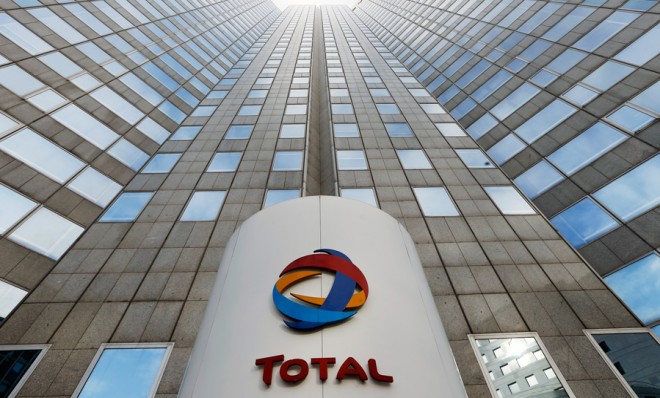Why a French oil giant owes the U.S. $398 million in bribery fines
The SEC says the company, Total, spent $60 million greasing palms for oil contracts

A free daily email with the biggest news stories of the day – and the best features from TheWeek.com
You are now subscribed
Your newsletter sign-up was successful
French oil company Total agreed on Wednesday to fork over $398.2 million in fines to the U.S. government to settle charges that it bribed Iranian officials for lucrative oil contracts.
The Securities and Exchange Commission claims that between 1995 and 2004, Total gave $60 million in bribes to intermediaries of an Iranian government official. The official then used his influence to negotiate a contract with the government-owned National Iranian Oil Company, which gave the French company access to explore Sirri Island in the Persian Gulf and part of the South Pars gas field, two of the region's prominent oil and gas deposits. Total's chief financial officer, Patrick de la Chevardière, said in a statement that the settlements — $245.2 million to the Department of Justice and another $153 million to the SEC — "allow us to put an end to this investigation."
The alleged deals violate the Foreign Corrupt Practices Act (FCPA), a law passed in 1977 to limit the very popular and nearly impossible-to-detect practice of lubricating business transactions with under-the-table payments. Rather than banning all payments, the law distinguishes between bribery and "grease payments." The latter are legal in some countries and sanctioned by the FCPA, but only if used to expedite actions officials are already contractually committed to perform.
The Week
Escape your echo chamber. Get the facts behind the news, plus analysis from multiple perspectives.

Sign up for The Week's Free Newsletters
From our morning news briefing to a weekly Good News Newsletter, get the best of The Week delivered directly to your inbox.
From our morning news briefing to a weekly Good News Newsletter, get the best of The Week delivered directly to your inbox.
Total's case shines a light on global bribery laws, as government agencies around the world — the SEC included — tighten the rules and aggressively pursue cases.
One recent example of this crackdown is the SEC's ongoing investigation of Walmart for bribing Mexican officials to build stores in the country. And in April, Ralph Lauren agreed to pay $882,000 for bribing government officials in Argentina to attain improper customs clearance.
As the SEC keeps a close eye on foreign corruption, the U.S. Chamber of Commerce and businesses are pushing back, says Peter J. Henning at The New York Times, "arguing that [FCPA] hampers American businesses because of how broadly it can be applied. Recent cases against pharmaceutical companies, like Pfizer for payments to foreign doctors who are part of state-controlled health systems show how the law can be used in areas once thought to fall outside its purview."
Still, loosening up international rules on bribery probably won't be a priority on Capitol Hill any time soon, Henning says. The biggest issue is "about what message revising the law would send if Congress gives companies greater leeway to avoid punishment for corrupt payments."
A free daily email with the biggest news stories of the day – and the best features from TheWeek.com
Carmel Lobello is the business editor at TheWeek.com. Previously, she was an editor at DeathandTaxesMag.com.
-
 5 cinematic cartoons about Bezos betting big on 'Melania'
5 cinematic cartoons about Bezos betting big on 'Melania'Cartoons Artists take on a girlboss, a fetching newspaper, and more
-
 The fall of the generals: China’s military purge
The fall of the generals: China’s military purgeIn the Spotlight Xi Jinping’s extraordinary removal of senior general proves that no-one is safe from anti-corruption drive that has investigated millions
-
 Why the Gorton and Denton by-election is a ‘Frankenstein’s monster’
Why the Gorton and Denton by-election is a ‘Frankenstein’s monster’Talking Point Reform and the Greens have the Labour seat in their sights, but the constituency’s complex demographics make messaging tricky